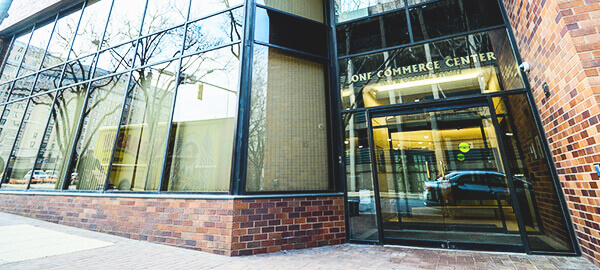How to Plan Your Estate in the Time of COVID-19
Estate planning is a difficult subject to think about, but it is important. That is especially true in the middle of a global pandemic. However, social distancing restrictions have changed the process. Here’s what you need to know.
How Does Estate Planning Work?
Delaware law requires certain legal documents including wills, trusts and other estate planning instruments to be signed in the presence of adult witnesses. The purposes of having a notary and/or witnesses physically present at the signing ceremony are to attest that the person signing is the person whose name is on the signature block.
29 Del. C. § 4309(c) reads: “a notary public or electronic notary public shall not notarize a document without the person signing the document being personally present” (emphasis added). This statute was drafted before the COVID-19 pandemic. Delaware is in different circumstances since its Wills Act was passed.
Senior citizens are the most at-risk age group for severe illness from COVID-19, according to the World Health Organization. Taking into account the fact that many Delawareans need to update or create a new will, durable power of attorney, and advance healthcare directive, these clients were stuck between a rock and a hard place under the current law.
How Can You Plan Your Estate During the Pandemic?
To alleviate the conflicting stressors of in-person meetings and living without an estate plan, Delaware Governor John Carney issued the eighth modification of his emergency order on April 15. The order says it was issued to ensure the health and safety of Delaware’s citizens by loosening strict compliance requirements with any statute that requires essential actions to take place in person, such as estate planning. In regard to witnessing and notarization, the order permits remote eNotarization and remote eWitnessing until the order is lifted. Delaware has permitted electronic notarization in the previously-mentioned § 4309(c), however, the notary must be “personally present” with the signor.
Remote eNotarization and eWitnessing have been added to the language of a few states’ will statutes in recent years. With today’s high-resolution video chat technology, improving network security, and digital signature software, most of the policy concerns that underlie traditional will statutes can be satisfied even if the parties are in different locations.
What Else Has Changed About Estate Planning in the Age of COVID-19?
Governor Carney’s Eighth Emergency Order allows for remote eNotarization, but only if certain requirements are met: (1) The notarial officer must be a licensed Delaware attorney, (2) all parties must be in Delaware and affirm that fact during the call, and (3) the attorney shall confirm the identity of the signors by his/her knowledge and perception or by photo identification. Many firms have asked clients to move their camera around the room to show if anyone else is present and that they are located where they say they are located.
Remote eWitnessing has similar requirements. The attorney must confirm the identities of the witnesses and they also must be located in Delaware. The witnesses may witness the documents transmitted by electronic means. This means they can sign an emailed or faxed copy, or they can use eSignature software like DocuSign or DocVerify. This also means that they do not have to sign the wet-ink original of each document. The parties can all sign the original at a later date, but the Recorder of Deeds has been instructed to accept any of these signed copies as long as they were executed while the Emergency Order was in effect.
The estate planning documents themselves must contain a statement, or have a separate document certifying the fact, that they were “notarized and/or witnessed pursuant to the 11th Modification of the Declaration of a State of Emergency for the State of Delaware Due to a Public Health Threat approved on April 15, 2020. The Authorized Notarial Officer’s name and Bar/License Number must also be included.
Law firms that begin to offer estate planning over video conference must weigh the technology options before moving forward. A few law firms have subscribed to DocVerify, which is one of the few secure videoconferencing clients with built-in electronic notarization, witnessing, and signing. There are also more popular options like Zoom, Skype for Business and FaceTime, but these chat clients do not have an eNotary feature.
Law firms must decide what level of distancing they are comfortable with as well as what their clients are comfortable with. Some may be comfortable with following CDC guidelines on limiting building occupancy and requiring clients to wear masks. For other firms, estate planning over video conference may be the only practicable option until there is a seasonal decline in cases or a vaccine. Until then, Delaware law firms and their clients have more options than before the Emergency Order.

